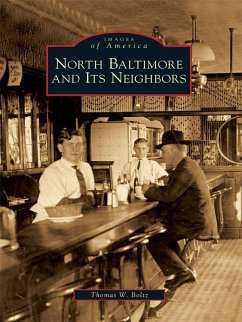Located 25 miles south of Toledo, North Baltimore and its neighboring communities have seen dramatic changes since being settled in the 1830s. Pioneers labored to establish small farms and villages in the midst of what was then the Black Swamp, gradually achieving modest but precarious success. Then, in the 1880s, oil was discovered. The area flourished, attracting speculators, turning farmers into millionaires, and transforming quiet villages into rough-and-tumble boomtowns. It was a colorful period that also brought large homes, imposing commercial buildings, and grand town halls. However, by 1915, the oil field was depleted, and North Baltimore and its neighbors returned to their existence as quiet towns. Since then, many of the beautiful old buildings have disappeared, obscuring evidence of the area,s dynamic history. With over 200 pictures, many from private collections, North Baltimore and Its Neighbors helps ensure that this history will not be forgotten.
Dieser Download kann aus rechtlichen Gründen nur mit Rechnungsadresse in A, B, BG, CY, CZ, D, DK, EW, E, FIN, F, GR, HR, H, IRL, I, LT, L, LR, M, NL, PL, P, R, S, SLO, SK ausgeliefert werden.









